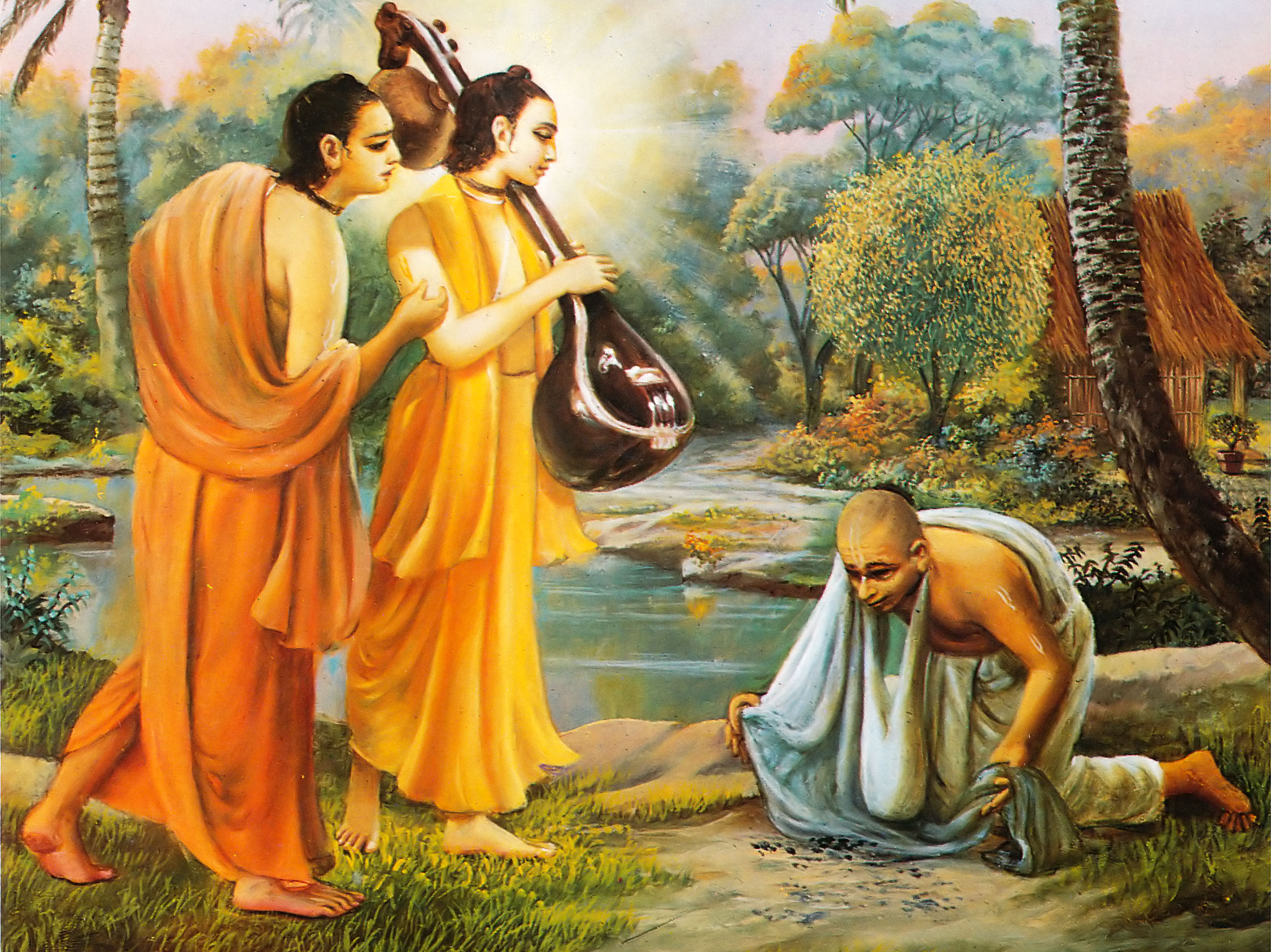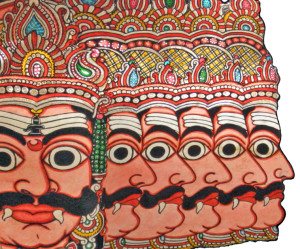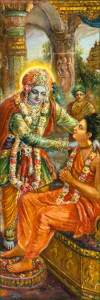Narada’s Encounter with the Hunter
Introduction Once upon a time, the great saint Narada, after visiting Lord Narayana in the Vaikunthas, went to Prayaga to bathe at the confluence of three rivers—the Ganges, Yamuna, and Sarasvati. The great saint Narada is so liberated that he can travel between the Vaikuntha planets and this material world with ease. The word “tri-veni” refers to this sacred confluence, which is still visited by many hundreds of thousands of people, especially during the month of January (Magha-mela). A liberated person who has no material body can go anywhere and everywhere, unlike those with material bodies. For instance, inhabitants of Siddhaloka can travel from one planet to another without the aid of a machine or space rocket.
The Suffering Animals As Narada Muni journeyed through the forest, he came across a deer lying on the path, pierced by an arrow, with broken legs, twisting in pain. Farther ahead, he saw a boar and a rabbit, similarly suffering. Narada Muni was greatly pained at heart to see these living entities suffer.
The Hunter Narada Muni then noticed a hunter behind a tree, holding arrows and ready to kill more animals. The hunter’s body was blackish, his eyes were reddish, and he appeared fierce, like the superintendent of death, Yamaraja.
The Encounter Narada Muni approached the hunter, causing the animals to flee. The hunter wanted to chastise Narada with abusive language but was unable to do so in the presence of the saint. The hunter addressed Narada, saying, “O gosvami! O great saintly person! Why have you left the general path through the forest to come to me? Simply by seeing you, all the animals I was hunting have now fled.”
Narada Muni replied, “Leaving the path, I have come to you to settle a doubt in my mind. I was wondering whether all the half-killed animals belong to you.” The hunter admitted this and explained that his name was Mrgari, enemy of animals, and that his father had taught him to kill them in this way. He felt great pleasure in seeing half-killed animals suffer.
Narada’s Request Narada Muni then asked the hunter to kill animals completely instead of leaving them half-dead. The hunter questioned what was wrong with leaving animals half-killed. Narada Muni explained that causing unnecessary pain to living entities would result in suffering for the hunter himself.
The Hunter’s Transformation Convinced by Narada Muni’s words, the hunter admitted his sinful activities and expressed his fear of the consequences. Narada Muni then instructed him to break his bow and assured him that he would provide for his needs. The hunter, after some hesitation, complied and broke his bow.
Life After Renunciation Narada Muni instructed the hunter to return home, distribute his riches to pure brahmanas, and live a simple life by the river, worshiping the tulasi plant and chanting the Hare Krishna maha-mantra. The hunter and his wife followed these instructions and began living a life of devotion.
Narada and Parvata Visit The news of the hunter’s transformation spread throughout the village, and people began bringing him alms. One day, Narada Muni, along with his friend Parvata Muni, decided to visit the hunter. The hunter, seeing them approach, carefully cleared ants from his path before offering his obeisances. Narada Muni praised the hunter’s transformation, and Parvata Muni acknowledged Narada’s powerful influence, comparing him to a touchstone.
Conclusion The hunter, now a Vaisnava, lived a life of devotion, maintaining himself with minimal resources and dedicating his time to worship. This story illustrates the profound impact of association with a pure devotee and the transformative power of devotional service.
From Caitanya-caritamrta Madhya-lila, translated and commented on by A.C. Bhaktivedanta Swami Maharaj.




